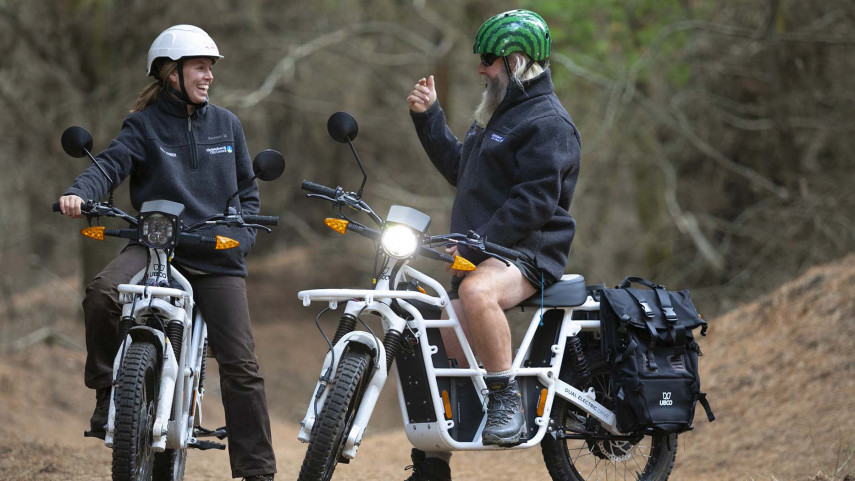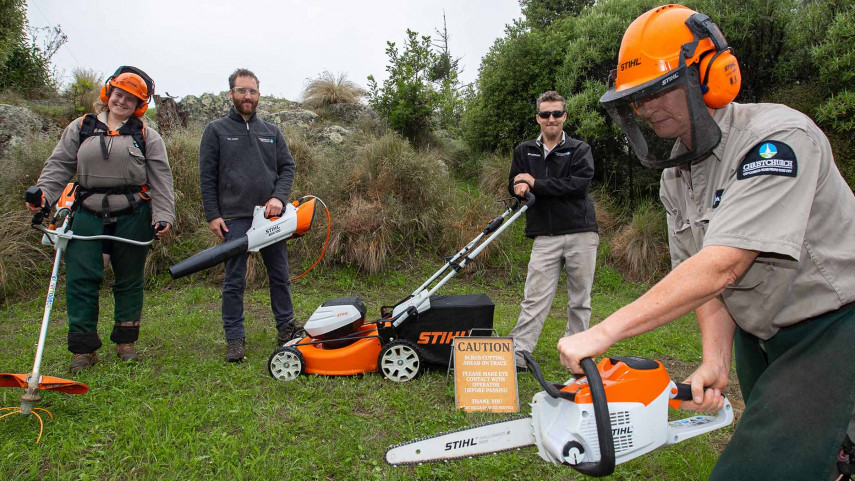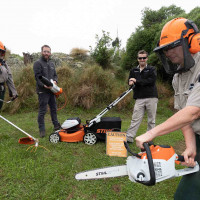
Christchurch park rangers power up for electric ride

Share this story
Park rangers are zipping around some of the city’s regional parks on electric motorbikes as part of the Christchurch City Council’s push towards more environmentally friendly initiatives.
The two battery electric motorbikes, which are designed in New Zealand by Ubco, are being used for Regional Parks operations, instead of traditional fossil-fuelled quad bikes.

Christchurch City Council park rangers are riding battery electric motorbikes around some of the city's regional parks.
The new zero-emission bikes can operate off-road and on road and have a range of 120 kilometres.
They are being used by Council park rangers working at Bottle Lake Forest, Spencer Park and Travis Wetland reserves. The bikes can carry tools for routine parks maintenance and can also be used to recharge tools in the field.
Council Regional Parks Manager Kay Holder says one of the most obvious benefits of using the bikes is the lack of noise so they do not disrupt people who are enjoying cycling or walking.
“Instead of disturbing the peace with engine noise, Parks staff on these bikes are able to quietly go about their work maintaining our regional parks. They’re also helping to preserve the clean air in our parks rather than creating exhaust pollution,” she says.
The Council has also bought an LDV EV80 pure electric van to be used for central city parks maintenance. It is stocked with battery electric tools and equipment, such as weed eaters and hedge trimmers.
The e-van has a driving range of 150km to 170km so it is well-suited to central city parks maintenance.
Council Team Leader Heritage and Central City Gardens Nicky Brown says the battery electric van has many advantages over a traditional petrol vehicle, including being very quiet and causing minimal vibration, as well as reducing pollution.
“It also means there’s no down-time for stopping off and filling up with petrol. Staff are getting a good amount of usage time per charge and charging times are minimal,” she says.
The Council has purchased the van and its charging equipment with funding support from the Energy Efficiency and Conservation Authority.
Council Resource Efficiency Manager Kevin Crutchley says the zero exhaust emission mobility and equipment initiatives the Council has implemented demonstrate the benefits of battery electric technology for commercial use.
“It also demonstrates our commitment to implement initiatives to meet the Council’s target to be net carbon neutral by 2030 for its activities,” he says.
In April, the Council launched a Take Charge Christchurch programme – a battery electric, zero exhaust emission, vehicle outreach programme for Christchurch businesses and the public.


